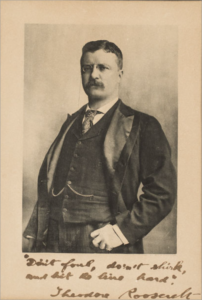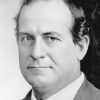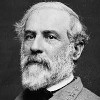Men differ daily, about things which are subject to Sense, is it likely then they should agree about things invisible.
Benjamin Franklin (1706-1790) American statesman, scientist, philosopher, aphorist
Poor Richard’s Almanack (1743)
Full text.
I wish to God that you had as much pleasure in following my advice, as I have in giving it [to] you.
Lord Chesterfield (1694-1773) English statesman, wit [Philip Dormer Stanhope]
Letter to his son, #216 (5 Feb 1750)
(Source)
All the martyrs in the history of the world are not sufficient to establish the correctness of an opinion. Martyrdom, as a rule, establishes the sincerity of the martyr, — never the correctness of his thought. Things are true or false in themselves. Truth cannot be affected by opinions; it cannot be changed, established, or affected by martyrdom. An error cannot be believed sincerely enough to make it a truth.
Robert Green Ingersoll (1833-1899) American lawyer, agnostic, orator
“The Great Infidels” (1881)
(Source)
The improver of natural knowledge absolutely refuses to acknowledge authority, as such. For him, scepticism is the highest of duties; blind faith the one unpardonable sin. And it cannot be otherwise, for every great advance in natural knowledge has involved the absolute rejection of authority, the cherishing of the keenest scepticism, the annihilation of the spirit of blind faith; and the most ardent votary of science holds his firmest convictions, not because the men he most venerates hold them; not because their verity is testified by portents and wonders; but because his experience teaches him that whenever he chooses to bring these convictions into contact with their primary source, Nature — whenever he thinks fit to test them by appealing to experiment and to observation — Nature will confirm them. The man of science has learned to believe in justification, not by faith, but by verification.
T. H. Huxley (1825-1895) English biologist [Thomas Henry Huxley]
“On the Advisableness of Improving Natural Knowledge” (1866)
Full text.
Formerly there were those who said: You believe things that are incomprehensible, inconsistent, impossible because we have commanded you to believe them; go then and do what is unjust because we command it. Such people show admirable reasoning. Truly, whoever is able to make you absurd is able to make you unjust. If the God-given understanding of your mind does not resist a demand to believe what is impossible, then you will not resist a demand to do wrong to that God-given sense of justice in your heart. As soon as one faculty of your soul has been dominated, other faculties will follow as well. And from this derives all those crimes of religion which have overrun the world.
[Il y a eu des gens qui ont dit autrefois: Vous croyez des choses incompréhensibles, contradictoires, impossibles, parce que nous vous l’avons ordonné; faites donc des choses injustes parce que nous vous l’ordonnons. Ces gens-là raisonnaient à merveille. Certainement qui est en droit de vous rendre absurde est en droit de vous rendre injuste. Si vous n’opposez point aux ordres de croire l’impossible l’intelligence que Dieu a mise dans votre esprit, vous ne devez point opposer aux ordres de malfaire la justice que Dieu a mise dans votre coeur. Une faculté de votre âme étant une fois tyrannisée, toutes les autres facultés doivent l’être également. Et c’est là ce qui a produit tous les crimes religieux dont la terre a été inondée.]
Voltaire (1694-1778) French writer [pseud. of Francois-Marie Arouet]
Questions sur les miracles (1765)
(Source)
Commonly translated: "Those who can make you believe absurdities can make you commit atrocities."
Man was born to live with his fellow human beings. Separate him, isolate him, his character will go bad, a thousand ridiculous affects will invade his heart, extravagant thoughts will germinate in his brain, like thorns in an uncultivated land.
The infinity of God is not mysterious, it is only unfathomable; not concealed, but incomprehensible; it is a clear infinity, the darkness of the pure unsearchable sea.
We must know what we think and speak out, even at the risk of unpopularity. In the final analysis, a democratic government represents the sum total of the courage and the integrity of its individuals. It cannot be better than they are.
All fantasy should have a solid base in reality.
Max Beerbohm (1872-1956) English parodist, caricaturist, wit, writer [Sir Henry Maximilian Beerbohm]
Zuleika Dobson, Note (1946 ed.)
Full text.
The fact that an opinion has been widely held is no evidence whatever that it is not utterly absurd; indeed in view of the silliness of the majority of mankind, a widespread belief is more likely to be foolish than sensible.
He who fights with monsters should look to it that he himself does not become a monster. And when you gaze long into an abyss, the abyss gazes also into you.
[Wer mit Ungeheuern kämpft, mag zusehn, dass er nicht dabei zum Ungeheuer wird. Und wenn du lange in einen Abgrund blickst, blickt der Abgrund auch in dich hinein.]
Friedrich Nietzsche (1844-1900) German philosopher and poet
Jenseits von Gut und Böse [Beyond Good and Evil], Aphorism 146 (1886) [tr. Hollingdale (1973, 1990)]
(Source)
Alternate translations:
He who fights with monsters should be careful lest he thereby becomes a monster. And if thou gaze long into an abyss, the abyss will also gaze into thee.
[tr. Zimmern (1906)]
Whoever fights monsters should see to it that in the process he does not become a monster. And when you look long into an abyss, the abyss also looks into you.
[tr. Kaufmann (1966)]
If you can bring to your children the self that you truly are, as opposed to some amalgam of manners and mannerisms, expectations and fears that you have acquired as a carapace along the way, you will give them, too, a great gift. You will teach them by example not to be terrorized by the narrow and parsimonious expectations of the world, a world that often likes to color within the lines when a spray of paint, a scrawl of crayon, is what is truly wanted.
Anna Quindlen (b. 1953) American journalist, novelist
Commencement Speech at Mount Holyoke College (23 May 1999)
Full text.
The world is so exquisite with so much love and moral depth, that there is no reason to deceive ourselves with pretty stories for which there’s little good evidence. Far better it seems to me, in our vulnerability, is to look death in the eye and to be grateful every day for the brief but magnificent opportunity that life provides.
Let every man in mankind’s frailty
Consider his last day; and let none
Presume on his good fortune until he find
Life, at his death, a memory without pain.Sophocles (496-406 BC) Greek tragic playwright
Oedipus Rex, l. 1529 (concluding words)
Young translation:
And of no moral say
"That man is happy," till
Vexed by no grievous ill
He pass Life's goal.
In short, in life, as in a foot-ball game, the principle to follow is:
Hit the line hard; don’t foul and don’t shirk, but hit the line hard!Theodore Roosevelt (1858-1919) American politician, statesman, conservationist, writer, US President (1901-1909)
“What We Can Expect of the American Boy,” St. Nicholas Magazine (1900-05)
(Source)
Reprinted as "The American Boy" in Roosevelt, The Strenuous Life (1900).
Roosevelt used this general phrasing on multiple occasions, so various forms can be found attributed or associated to him, such as:
- "In life, as in a football game, the principle to follow is: Never flinch. Never foul. Hit the line hard."
[Source]- "Don't flinch. Don't foul. Hit the line hard."
[Puck]- "Don't fowl, don't shirk, and hit the line hard!"
[Autograph]- "Don't flinch, don't fowl, and hit the line hard."
[Speech (1913-07-03)]
The World is full of fools and faint hearts; and yet every one has courage enough to bear the misfortunes, and wisdom enough to manage the Affairs of his neighbour.
Benjamin Franklin (1706-1790) American statesman, scientist, philosopher, aphorist
Poor Richard’s Almanack (1743)
Full text.
We cannot abdicate our conscience to an organization, nor to a government. ‘Am I my brother’s keeper?’ Most certainly I am! I cannot escape my responsibility by saying the State will do all that is necessary. It is a tragedy that nowadays so many think and feel otherwise.
Facts have a cruel way of substituting themselves for fancies. There is nothing more remorseless, just as there is nothing more helpful, than truth.
William C. Redfield (1858-1932) American politician
Address at Case School, Cleveland (27 May 1915)
The chief duty of governments, in so far as they are coercive, is to restrain those who would interfere with the inalienable rights of the individual, among which are the right to life, the right to liberty, the right to the pursuit of happiness and the right to worship God according to the dictates of one’s conscience.
Setting aside the scandal caused by His Messianic claims and His reputation as a political firebrand, only two accusations of personal depravity seem to have been brought against Jesus of Nazareth. First, that He was a Sabbath-breaker. Secondly, that He was “a gluttonous man and a winebibber, a friend of publicans and sinners” – or (to draw aside the veil of Elizabethan English that makes it sound so much more respectable) that He ate too heartily, drank too freely, and kept very disreputable company, including grafters of the lowest type and ladies who were no better than they should be. For nineteen and a half centuries, the Christian Churches have laboured, not without success, to remove this unfortunate impression made by their Lord and Master. They have hustled the Magdalens from the Communion-table, founded Total Abstinence Societies in the name of Him who made the water wine, and added improvements of their own, such as various bans and anathemas upon dancing and theatre-going. They have transferred the Sabbath from Saturday to Sunday, and, feeling that the original commandment “Thou shalt not work” was rather half-hearted, have added to it the new commandment, “Thou shalt not play.”
Against stupidity the very gods
Themselves contend in vain.[Mit der Dummheit kämpfen Götter selbst vergebens]
Friedrich Schiller (1759-1805) German poet, playwright, critic [Johann Christoph Friedrich von Schiller]
The Maid of Orleans [Die Jungfrau von Orleans], Act III, sc. vi (1801) [tr. Swanwick]
Alt. trans:
- "Against stupidity the gods themselves contend in vain."
- "Against stupidity the gods themselves labor in vain."
- "Against stupidity the gods themselves fight unvictorious."
- "Against stupidity even the gods contend in vain."
- "With stupidity the gods themselves contend in vain."
- "With stupidity the gods themselves struggle in vain."
To a person uninstructed in natural history, his country or seaside stroll is a walk through a gallery filled with wonderful works of art, nine-tenths of which have their faces turned to the wall.
“How can I help it?” he blubbered. “How can I help seeing what is in front of my eyes? Two and two are four.”
“Sometimes, Winston. Sometimes they are five. Sometimes they are three. Sometimes they are all of them at once. You must try harder. It is not easy to become sane.”
Religious and philosophical beliefs are, indeed, as dangerous as fire, and nothing can take from them that beauty of danger. But there is only one way of really guarding ourselves against the excessive danger of them, and that is to be steeped in philosophy and soaked in religion.
The bosom of America is open to receive not only the Opulent and respectable Stranger, but the oppressed and persecuted of all Nations And Religions; whom we shall wellcome to a participation of all our rights and previleges, if by decency and propriety of conduct they appear to merit the enjoyment.
It is foolish, generally speaking, for a philosopher to set fire to another philosopher in Smithfield Market because they do not agree in their theory of the universe. That was done very frequently in the last decadence of the Middle Ages, and it failed altogether in its object. But there is one thing that is infinitely more absurd and unpractical than burning a man for his philosophy. This is the habit of saying that his philosophy does not matter, and this is done universally in the twentieth century, in the decadence of the great revolutionary period.
The stroke of the whip maketh marks in the flesh: but the stroke of the tongue breaketh the bones. Many have fallen by the edge of the sword: but not so many as have fallen by the tongue.
The Bible (The Old Testament) (14th - 2nd C BC) Judeo-Christian sacred scripture [Tanakh, Hebrew Bible], incl. the Apocrypha (Deuterocanonicals)
Sirach (Ecclesiasticus) 28:17-18 [KJV (1611)]
(Source)
Alternate translations:
The stroke of a whip maketh a blue mark: but the stroke of the tongue will break the bones. Many have fallen by the edge of the sword, but not so many as have perished by their own tongue.
[DRA (1899); 28:21-22]
A stroke of the whip raises a weal, but a stroke of the tongue breaks bones. Many have fallen by the edge of the sword, but many more have fallen by the tongue.
[JB (1966)]
A whip can raise a welt, but a vicious tongue can break bones. More people have died as a result of loose talk than were ever killed by swords.
[GNT (1976)]
The blow of a whip raises a welt, but a blow of the tongue crushes the bones. Many have fallen by the edge of the sword, but not as many as have fallen because of the tongue.
[NRSV (1989 ed.)]
TECMESSA: Ignorant men
Don’t know what good they hold in their hands until
They’ve flung it away.Sophocles (496-406 BC) Greek tragic playwright
Ajax, l. 964 [tr. Moore (1959)]
Alt trans.:
- “Men of perverse opinion do not know / The excellence of what is in their hands, / Till some one dash it from them.” [George Young (1888)]
- "Men of ill judgement oft ignore the good / That lies within their hands, till they have lost it."
- "For those who are base in judgement do not know the good they hold in their hands until they cast it off."
No man is justified in doing evil on the ground of expediency. He is bound to do all the good possible. Yet he must consider the question of expediency, in order that he may do all the good possible, for otherwise he will do none.
Theodore Roosevelt (1858-1919) American politician, statesman, conservationist, writer, US President (1901-1909)
“Latitude and Longitude Among Reformers,” The Century (Jun 1900)
Collected in his volume of essays and addresses, The Strenuous Life (1900); the first sentence is most often quoted, and often cited under that book's name (not to be confused with its title essay). Full text.
Only the insane take themselves quite seriously.
Max Beerbohm (1872-1956) English parodist, caricaturist, wit, writer [Sir Henry Maximilian Beerbohm]
“Poor Romeo” (1896)
Full text.
Therefore the good man, although he is a slave, is free; but the bad man, even if he reigns, is a slave, and that not of one man, but, what is far more grievous, of as many masters as he has vices.
[Proinde bonus etiamsi seruiat, liber est; malus autem etiamsi regnet, seruus est, nec unius hominis, sed, quod est grauius, tot dominorum, quot uitiorum.]
Augustine of Hippo (354-430) Christian church father, philosopher, saint [b. Aurelius Augustinus]
City of God [De Civitate Dei], Book 4, ch. 3 (4.3) (AD 412-416) [ed. Dods (1871)]
(Source)
See 2 Peter 2:19 "For people are slaves to whatever masters them." The idea of being a slave to vices was also a Stoic belief. Compare to La Bruyere.
(Source (Latin)). Alternate translations:
And therefore he that is good is free though he be a slave, and he that is evil, a slave though he be a king. Nor is he slave to one man, but that which is worst of all, unto as many masters as he affects vices.
[tr. Healey (1610)]
Thus, a good man, though a slave, is free; but a wicked man, though a king, is a slave. For he serves, not one man alone, but, what is worse, as many masters as he as vices.
[tr. Zema/Walsh (1950)]
Hence even if a good man be a slave, he is free; whereas if a wicked man rule, he is a slave -- and a slave not to one man but, what is worse, to as many masters as he has vices.
[tr. Green (Loeb) (1963)]
The good man, though a slave, is free; the wicked, though he reigns, is a slave, and not the slave of a single man, but -- what is far worse -- the slave of as many masters as he has vices.
[tr. Bettenson (1972)]
Therefore the good man is free even if he is a slave, whereas the bad man is a slave even if he reigns: a slave, not to one man, but, what is worse, to as many masters as he has vices.
[tr. Dyson (1998)]
Thus the good person is free, even if a slave, and the evil person is enslaved, even if a ruler -- enslaved not to one master but, what is far worse, to as many masters as he has vices.
[tr. Babcock (2012)]
On the other hand, the cheapest form of pride is national pride; for the man affected therewith betrays a want of individual qualities of which he might be proud, since he would not otherwise resort to that which he shares with so many millions. The man who possesses outstanding personal qualities will rather see most clearly the faults of his own nation, for he has them constantly before his eyes. But every miserable fool, who has nothing in the world whereof he could be proud, resorts finally to being proud of the very nation to which he belongs. In this he finds compensation and is now ready and thankful to defend, “tooth and nail,” all the faults and follies peculiar to it.
[Die wohlfeilste Art des Stolzes hingegen ist der Nationalstolz. Denn er verrät in dem damit Behafteten den Mangel an individuellen Eigenschaften, auf die er stolz sein könnte, indem er sonst nicht zu dem greifen würde, was er mit so vielen Millionen teilt. Wer bedeutende persönliche Vorzüge besitzt, wird vielmehr die Fehler seiner eigenen Nation, da er sie beständig vor Augen hat, am deutlichsten erkennen. Aber jeder erbärmliche Tropf, der nichts in der Welt hat, darauf er stolz sein könnte, ergreift das letzte Mittel, auf die Nation, der er gerade angehört, stolz zu sein. Hieran erholt er sich und ist nun dankbarlich bereit, alle Fehler und Torheiten, die ihr eigen sind, mit Händen und Füßen zu verteidigen.]
Arthur Schopenhauer (1788-1860) German philosopher
Parerga and Paralipomena, Vol. 1, “Aphorisms on the Wisdom of Life [Aphorismen zur Lebensweisheit],” ch. 4 “From What One Imagines [Von dem, was einer vorstellt]” (1851) [tr. Payne (1974)]
(Source)
(Source (German)). Alternate translation:
The cheapest sort of pride is national pride; for if a man is proud of his own nation, it argues that he has no qualities of his own of which he can be proud; otherwise he would not have recourse to those which he shares with so many millions of his fellowmen. The man who is endowed with important personal qualities will be only too ready to see clearly in what respects his own nation falls short, since their failings will be constantly before his eyes. But every miserable fool who has nothing at all of which he can be proud adopts, as a last resource, pride in the nation to which he belongs; he is ready and glad to defend all its faults and follies tooth and nail, thus reimbursing himself for his own inferiority.
[tr. Saunders (1890)]
The cheapest form of pride however is national pride. For it betrays in the one thus afflicted the lack of individual qualities of which he could be proud, while he would not otherwise reach for what he shares with so many millions. He who possesses significant personal merits will rather recognise the defects of his own nation, as he has them constantly before his eyes, most clearly. But that poor beggar who has nothing in the world of which he can be proud, latches onto the last means of being proud, the nation to which he belongs to. Thus he recovers and is now in gratitude ready to defend with hands and feet all errors and follies which are its own.
[Source]
We are here just for a spell and then pass on. So get a few laughs and do the best you can. Live your life so that whenever you lose it, you are ahead.
How many observe Christ’s Birth-day! How few, his Precepts! O! ’tis easier to keep Holidays than Commandments.
Benjamin Franklin (1706-1790) American statesman, scientist, philosopher, aphorist
Poor Richard’s Almanack (1743)
(Source)









































